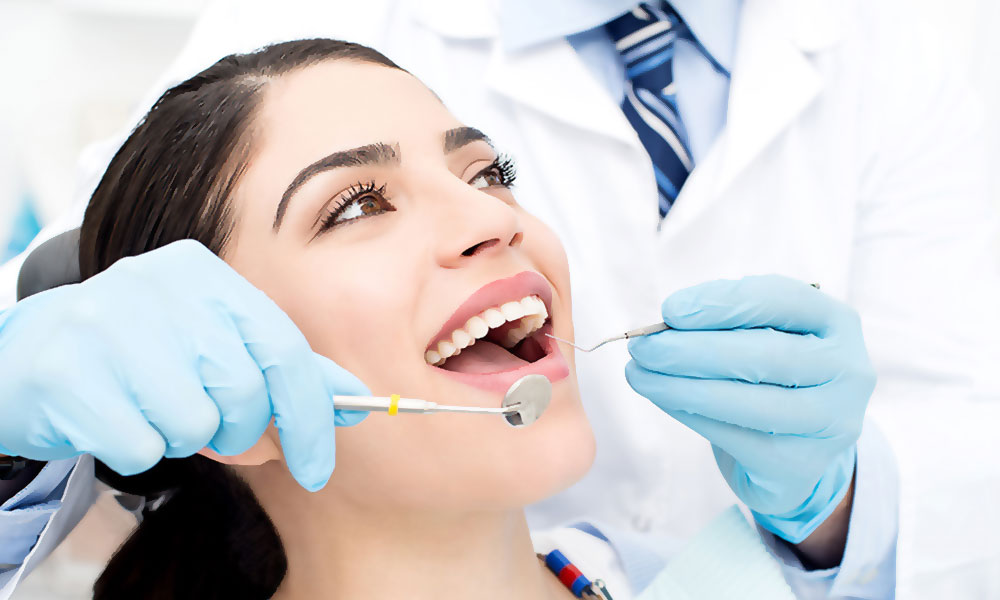
Oral hygiene plays a crucial role in maintaining overall health and well-being. It encompasses a range of practices aimed at keeping the mouth clean and healthy, thereby preventing various oral health problems. If you’re looking for an experienced dentist in Plano TX, Independence Dental is the place to go for top-notch dental care.
The Importance of Oral Hygiene
Maintaining good oral hygiene is not just about having a bright smile; it is essential for preventing dental issues such as cavities, gum disease, and bad breath. Additionally, oral health is closely linked to overall health, with poor oral hygiene being associated with an increased risk of various systemic diseases.
Common Oral Health Problems
Tooth Decay
Tooth decay, also known as cavities or dental caries, is one of the most prevalent oral health problems worldwide. It occurs when plaque, a sticky film of bacteria, combines with sugars from the foods we eat to produce acids that erode tooth enamel.
Gum Disease
Gum disease, or periodontal disease, is an infection of the tissues that surround and support the teeth. It starts with gingivitis, characterized by red, swollen gums that bleed easily, and if left untreated, can progress to periodontitis, causing tooth loss and other complications.
Bad Breath
Bad breath, or halitosis, can be embarrassing and socially debilitating. It often results from poor oral hygiene, but it can also be a sign of underlying dental problems or systemic conditions such as diabetes or liver disease.
Effective Oral Hygiene Practices
Brushing Techniques
Proper brushing technique is crucial for removing plaque and preventing tooth decay and gum disease. Dentists recommend brushing at least twice a day for two minutes each time, using a fluoride toothpaste and a soft-bristled toothbrush.
Flossing Tips
Flossing helps remove plaque and food particles from between the teeth and along the gum line, where toothbrushes cannot reach. It should be done once a day, using a gentle sawing motion to avoid injuring the gums.
Mouthwash Usage
Mouthwash can help reduce plaque, fight bacteria, and freshen breath. However, it should not be used as a substitute for brushing and flossing, but rather as a complement to these oral hygiene practices.
Diet and Oral Health
Impact of Sugary Foods
Consuming sugary foods and drinks increases the risk of tooth decay, as bacteria in the mouth feed on sugars to produce acids that attack tooth enamel. Limiting sugary snacks and opting for healthier alternatives can help protect dental health.
Importance of Calcium-rich Foods
Calcium is essential for maintaining strong teeth and bones. Incorporating calcium-rich foods such as dairy products, leafy greens, and fortified cereals into the diet can help promote oral health.
Regular Dental Checkups
Frequency of Dental Visits
Regular dental checkups are vital for detecting and addressing oral health issues early on. Most dentists recommend visiting the dentist every six months for a comprehensive examination and professional cleaning.
Importance of Professional Cleaning
Professional dental cleanings remove plaque and tartar buildup that cannot be removed through brushing and flossing alone. They also provide an opportunity for dentists to assess the overall health of your teeth and gums.
Additional Tips for Oral Hygiene
Using Fluoride Toothpaste
Fluoride helps strengthen tooth enamel and prevent tooth decay. Dentists recommend using a fluoride toothpaste as part of your daily oral hygiene routine.
Avoiding Tobacco Products
Tobacco use is a significant risk factor for various oral health problems, including gum disease, tooth decay, and oral cancer. Quitting smoking and avoiding other tobacco products can significantly improve oral health.
Limiting Alcohol Consumption
Excessive alcohol consumption can contribute to dry mouth, which increases the risk of tooth decay and gum disease. Limiting alcohol intake and staying hydrated with water can help maintain oral health.
Incorporating Oral Hygiene into Daily Routine
Morning Routine
Start your day by brushing your teeth for two minutes using fluoride toothpaste. Don’t forget to clean your tongue and rinse with mouthwash for added freshness.
Nighttime Routine
Before bed, brush and floss your teeth to remove plaque and food particles that have accumulated throughout the day. Use mouthwash to kill bacteria and prevent bad breath while you sleep.
Children and Oral Hygiene
Importance of Early Dental Care
Teaching children proper oral hygiene habits from a young age sets the foundation for a lifetime of good dental health. Parents should start cleaning their child’s gums even before the first tooth emerges and introduce brushing and flossing as soon as teeth appear.
Tips for Parents
Encourage healthy eating habits, limit sugary snacks and drinks, and make dental visits fun and positive experiences for children to promote good oral health.
Oral Hygiene for Seniors
Challenges Faced
Seniors may face unique challenges in maintaining oral hygiene, such as reduced dexterity, dry mouth, and age-related dental issues. Regular dental visits and proper oral care can help address these challenges and prevent oral health problems.
Special Considerations
Seniors should pay extra attention to oral hygiene and visit the dentist regularly for checkups and cleanings. Using adaptive devices, such as electric toothbrushes or floss holders, can make oral care easier for those with limited mobility.
Oral Hygiene and Overall Health
Connection with Heart Health
Research suggests that there may be a link between poor oral health and cardiovascular disease. Maintaining good oral hygiene may help reduce the risk of heart problems and other systemic conditions.
Impact on Diabetes
People with diabetes are at a higher risk of developing gum disease, and gum disease can make it more challenging to control blood sugar levels. Proper oral hygiene and regular dental care are essential for managing diabetes and preventing oral health complications.
Conclusion
Maintaining oral hygiene is essential for preventing dental problems, promoting overall health, and ensuring a bright smile for years to come. By following the tips and recommendations provided by dentists, you can achieve optimal oral health and enjoy the benefits of a healthy smile.


